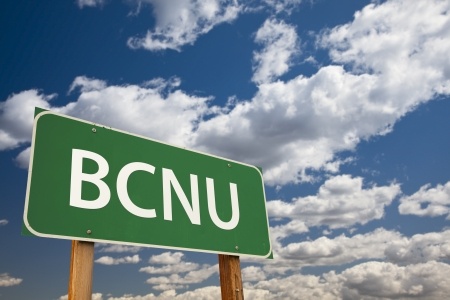New Next Now (August 2016)

Here’s our monthly review of the best of the many articles, books, videos and ideas-in-other-forms that our Deputy Editor Kyle Elzy has found for you. The nextsensing mind, we believe, is always stretching to see beyond the marketplace horizon. Let’s get started …
Cruise into the future. With self-driving cars already upon us, Mercedes-Benz is taking the next step. The “Future Bus”, the world’s first self-driving city bus, is already on the road, reports Doug Newcomb (@dougnewcomb) for @Forbes. Testing has begun in Amsterdam due to the city’s challenging network of turns and intersections. Thankfully, the Future Bus is packed with front and rear cameras and a short-wave radar, and it can communicate with traffic lights to ensure a safer, smoother ride. The interior features designer seats, wireless device charging, and onscreen entertainment. Production is set to begin after 2020. [Read More Now]
It’s all in the genes. Society says we can be anything we choose, if we set our minds to it. But science is beginning to push back on that notion, says Olivia Goldhill (@OliviaGoldhill) for @qz. Geneticists are pinning the strong influence of DNA on everything from personality differences to children’s success rates in school, making behavioural genetics “the fastest growing field in science”. Why is it important? California State University geneticist Nancy Segal believes in the value of “explanations… that help you plan for the future and alter your lifestyle appropriately.” [Read More Now]
A tasty “cool” concept. This one comes from Rob Leane (@robleane) at @mental_floss, who highlights a new start-up built around the impossible: ice cream that does not melt. The secret is freeze-drying and it’s actually nothing new: astronauts have been enjoying the packaged variety for decades. But Gastronaut Ice Cream and founder Robert Collignon are “redefining” it for the ice cream-craving world, and that starts with quality ingredients. Collignon uses “super-premium organic ice cream” and “a touch of sea salt”, making for a delicious — and lucrative — treat. The company is already $30,500 (USD) above its $9,500 Kickstarter goal. [Read More Now]
All aboard. The SeaBubbles are coming — perhaps as soon as next summer. Two entrepreneurs have succeeded in raising 500,000 euros to build a fleet of “bubble-shaped” river taxis in the hopes of making urban travel easier. “You’ve got packed roads and empty waterways in a lot of cities,” says co-founder Alain Thebault. The battery-powered shuttles are designed to hover over the water with five passengers, and the founders hope the cabs can go fully automated in a few years. Many thanks to Marie Mawad (@Marie_a_Paris) and Alexandre Boksenbaum-Granier (@HatsBoks) for this Bloomberg @technology feature. [Read More Now]
Just in case you missed this when it first appeared… Where industry meets biology. How can we better integrate what we create with the natural forms of the world around us? According to designer/architect Neri Oxman (@NeriOxman), it’s already happening. In her @TedTalks presentation, Oxman describes the unprecedented digital fabrication tools now available to designers, which have allowed for innovations driven by nature — from seamless clothing that acts like a second skin, to entire structures made of hard seashell-like materials. “Here’s to… a new age of creation,” she concludes, “that takes us from a nature-inspired design to a design-inspired nature….” [Watch More Now]
Paid to… listen? That’s the occupation of Takanobu Nishimoto, whose team of 60 middle-aged Japanese men “lend an ear” to those who are fearful of opening up to friends and family. Most are just eager for some company and a little bit of understanding, says Karyn Nishi-Poupee (@karyn_poupee) at @AFP: “…it allows them to forget the expectations of their family and friends and speak freely… [which is] especially useful in Japan, where social roles can be tightly defined….” [Read More Now]
An eye for A.I. Microsoft is hedging its bets on artificial intelligence as the critical DNA for all next-gen apps and services worldwide, reports Casey Newton (@CaseyNewton) for @verge. @Microsoft CEO Satya Nadella believes the company is in the driver’s seat on A.I., thanks to its advances in “smart” systems that learn and process information quickly and accurately. Those innovations led to Cortana, which allows users to speak what they want to know instead of typing it. Now, Nadella’s team aims to “elevate the experience” by combining A.I., messaging, and social networking into one seamless package. [Read More Now]
You’re making that up. One of the men behind the Dunning-Kruger effect is at it again, sharing some fascinating new insights on “inflated” knowledge. In a recent study at Cornell University in New York, psychologist David Dunning has observed that people confident in their specialised knowledge are more likely to claim they know more than they actually do — and will even acknowledge technical terms that are, in reality, total fabrications. Says Simon Oxenham (@neurobonkers) for @bigthink: “A stunning 92 per cent of people claimed to be familiar with the nonexistent biological subjects of ‘meta-toxins,’ ‘bio-sexual,’ and ‘retroplex.'” [Read More Now]
VR for the young-at-heart. Who says virtual reality can’t be enjoyed by everyone? Physician-turned-entrepreneur Sonya Kim is embracing the wonders of VR as a way to combat depression and dementia in seniors — and there is hard research to back it up. The Oculus Rift platform allows her to bring scenic, relaxing experiences into homes and senior care facilities all over California’s San Francisco Bay Area, helping those in their golden years to reconnect. Says Kim: “Dementia patients often feel lost…. By giving them a beautiful beach, I want them to feel found again.” Thanks to Kara Platoni (@KaraPlatoni) and @KQEDscience for this great article. [Read More Now]
If you build it… “An italian jury of architects award 132 buildings and urban planning projects from over 40 nations to define a new global design aesthetic for 2016.” Thanks for the alert from @e_architect. [Read More Now]
Big impact, bright future. Sydney, Australia is taking the lead on environmental progress, setting new goals on emissions and efficiency. By 2030, the city plans to reach 50 per cent renewable electricity, with net zero carbon emissions to follow by 2050. It’s an ambitious target, but @renew_economy columnist Sophie Vorrath (@sophvorrath) reports Sydney is already well on its way: 6,604 street lamps upgraded to LED and zero new vehicle emissions since 2014. The city will also reward projects that support the initiative. Says Lord Mayor Clover Moore: “After eight years of progress, it’s time for us to raise the bar….” [Read More Now]
Funds = solutions. A global venture capital firm is pouring investments into an unlikely industry: African start-ups. Omidyar Network, the brainchild of eBay founder Pierre Omidyar (@pierre), has begun to support a variety of new companies seeking to use technology to fight poverty and disease, provide free education resources, and create jobs, according to Lebogang Tsele (@LebogangTsele) on @SMESouthAfrica. Charmaine Padayachy, a principal of Omidyar Network, says the firm is “built on the belief that businesses can be a powerful force for good” in ways that non-profit organisations often struggle to achieve. [Read More Now]
Quote of the Month From @LizWiseman: “In this world, it’s not what you know that matters anymore, it’s how fast you can learn.” Cited by @ValaAfshar in his provocative article: “Coding And A Rookie Mindset Are Critical Skills For The Fourth Industrial Revolution”. Thanks @HuffingtonPost! [Read More Now]
Leadership is key. “… [Clear] and decisive leadership” is needed at all levels of management for any company looking to navigate and succeed in the new digital economy. That’s the view of Andrew Woolf (@andrewwoolf2), Managing Director of Financial Services at @accenture. He says leaders should expect many of the “norms” to be upended, believing that organisational stability and rule following have already given way to experimentation and change. Above all, he says that collaboration is absolutely essential — the way forward must be guided and supported “from the centre,” not from the top down. [Read More Now]
Watch Steven D’Souza. One of our NextSensors is now on YouTube discussing his intriguing thoughts on the value of “not knowing.” [Watch More Now]



